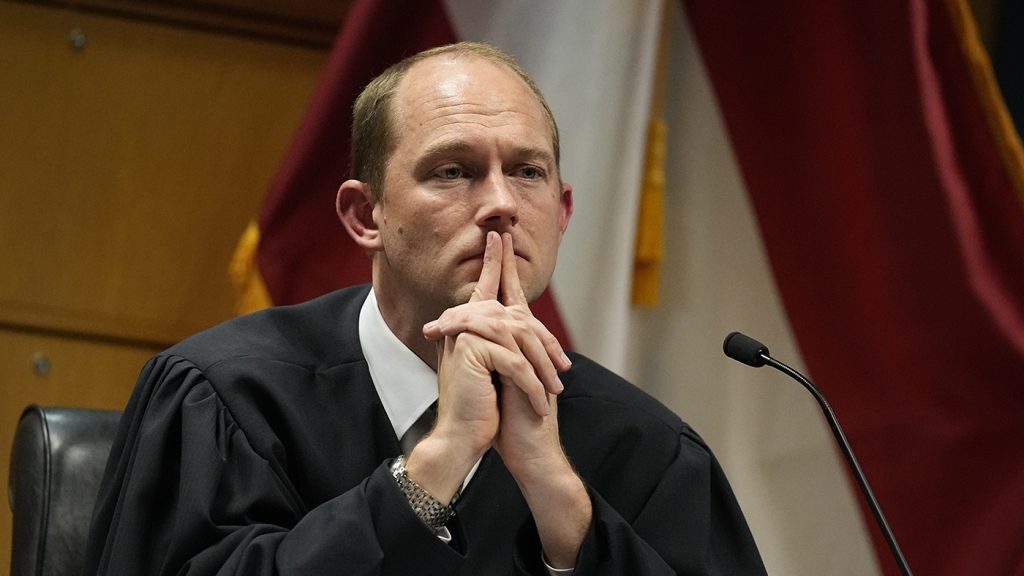The judge in charge of former President Trump’s Georgia election interference case rejected his request to dismiss his charges using the First Amendment.
Trump and some of his co-defendants argued that their charges should be dismissed because their attempts to challenge the 2020 election were constitutionally protected as “core political speech.”
“Even core political speech addressing public matters can still be subject to prosecution if it is allegedly used for criminal activity,” Judge Scott McAfee wrote in the 14-page ruling.
McAfee stated that only a jury can determine whether the speech in question was conducted with criminal intent. His decision leaves open the possibility for Trump to raise a First Amendment defense in the future as more evidence emerges.
Fulton County District Attorney Fani Willis (D) accused Trump and more than a dozen of his allies last summer of engaging in a months-long criminal conspiracy to overturn Joe Biden’s 2020 victory in Georgia. Trump pleaded not guilty, and a trial date has not yet been set.
The DA’s office declined to comment on McAfee’s latest ruling.
Trump lawyer Steve Sadow presented Trump’s argument to McAfee during a hearing last week, stating that any speech related to elections or campaigns has always been considered highly protected speech.
As a result, he argued that the state charges faced by Trump and his co-defendants, including Racketeer Influenced and Corrupt Organizations (RICO) Act charges, should not have been brought.
“Take out the protected speech, and you don’t have an underlying basis for which to charge him,” Sadow said.
Trump and his co-defendants still have various other pending motions seeking to dismiss their charges without a trial.
These efforts include Trump’s presidential immunity defense, which is likely to be affected by the Supreme Court’s ruling on Trump’s similar defense to his federal election interference indictment brought in Washington, D.C.
“President Trump and other defendants respectfully disagree with Judge McAfee’s order and will continue to evaluate their options regarding the First Amendment challenges,” Sadow said in a statement, emphasizing how Trump could again bring up some of his claims at a later time.









